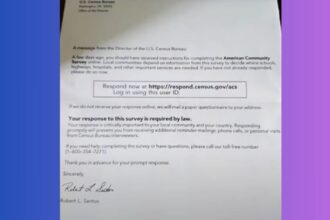Job seekers across the country are receiving unsolicited text messages promoting fraudulent job opportunities at Solomon Page, a legitimate New York-based staffing agency founded in 1990. The texts appear to come from local phone numbers and claim the sender is a Solomon Page Careers Group recruiter inquiring if the recipient is seeking employment.
However, the texts are not affiliated with the real company and instead aim to phish personal details from applicants and potentially steal their identities. Authorities advise anyone receiving such a text to avoid engaging and report the scam attempt.
Job Seekers Beware the Solomon Page Careers Group Fake Text Scams
The scam text messages are structured in a similar fashion, such as:
“Hi, I’m Ariana from Solomon Page, are you looking for a job?”
If the recipient responds, the scammer will provide a phishing link rather than legitimate application information. The goal is to get unsuspecting job hunters to input sensitive data like their social security number that can then be used for identity theft and financial fraud.
Unfortunately, many eager applicants let their guard down when an “employer” reaches out about work. But legitimate companies do not contact potential candidates this way, nor do they immediately request vast amounts of personal information.
So if you get an unsolicited text about employment, especially one riddled with typos or grammatical errors, it is almost assuredly a scam attempt. Delete the message and block the number to protect yourself.
How the Scammers Operate
The Solomon Page imposters are able to cast a wide net for victims by utilizing automated texting technology and disguising their identities.
Key strategies include:
- Spoofing local area codes – By using phone numbers similar to the recipient’s, texts appear familiar and less suspicious
- Name-dropping a real company – Tying the fraud to an actual business like Solomon Page brings credibility
- Sending mass texts – Automated systems let fraudsters blanket thousands of numbers rapidly
- Using common names – “Ariana” is a popular American name, making texts seem more personal
Once a target takes the bait, scammers employ psychological manipulation tactics to build trust and extract more information over ongoing communication. Victims may be asked to complete fake “background checks” or “employment verifications” feeding their data directly to criminals.
Tips to Protect Yourself from Solomon Page Job Recruitment Frauds
While most understand to avoid suspicious links and unsolicited messages, desperation for work and financial stability can cause some to overlook red flags. Remain vigilant against potential scams with these tips:
- Research companies before applying – Verify legitimacy, check reviews, and scrutinize contact info.
- Avoid responding to unsolicited texts/calls/emails – Do not opt-in to unwanted communication from questionable sources.
- Be wary of anyone requesting sensitive information – No employer needs things like bank accounts or SSNs during initial outreach.
- Look for poor grammar and spelling errors – These often indicate phishing attempts from foreign numbers.
- Only communicate via official company channels – Professional recruiters will have corporate email addresses and domains.
- Confirm a company’s real HR contact info – Call or email their public listings rather than unknown numbers.
- Trust your instincts – If an offer seems suspicious or too good to be true, it likely is.
What To Do If You Get a Suspicious Job Offer
If you receive an unsolicited text, call, or email about employment that you find dubious like the Solomon Page fake recruitment text:
- Do not engage – Don’t reply or open any links. Deleting the message cuts off communication.
- Report the fraud – Notify agencies like the FTC to help warn others.
- Block the source – Prevent future contact attempts from that number/address.
- Monitor accounts closely – Review bank/credit statements for misuse of your information.
- Consider identity theft protection – Proactive monitoring from companies like LifeLock can alert consumers to fraud in their name.
Job recruitment scams are on the rise, with predators taking advantage of vulnerable employment seekers. But with proper precautions, you can avoid becoming a victim. Remember to keep personal information protected until officially hired, extensively validate potential employers, and stop communication with anyone asking for excessive details upfront.
Stay vigilant in your job search and don’t let scammers sabotage your career aspirations. Report any suspicious contact attempts to help prevent others from falling into fraudulent traps. Prioritize real opportunities with trusted companies that make employee safety and satisfaction a priority.




















